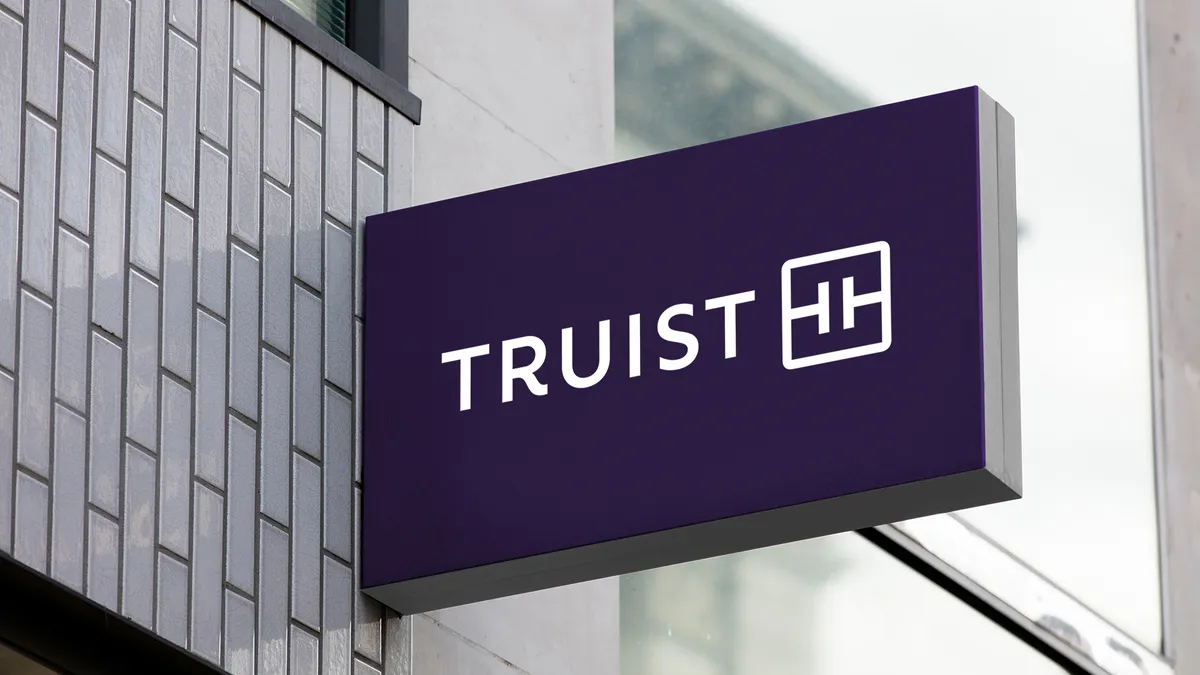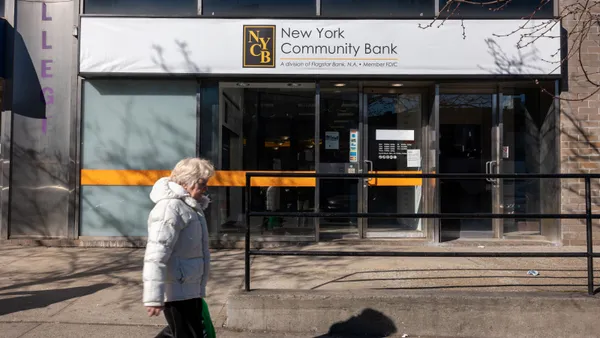Truist is in talks to sell the rest of its insurance brokerage to private-equity firm Stone Point Capital for about $10 billion, Semafor reported Monday.
Stone Point bought 20% of Truist Insurance Holdings for $1.95 billion in a deal announced in February.
The potential selloff marks a bit of an about-face for Truist, which appeared bullish to hold onto the majority of its insurance business as of February.
“We considered many options, but we believe this approach maximizes our long-term strategic and financial flexibility,” Truist CEO Bill Rogers said at the time. “Importantly, because we’re only selling a minority stake, Truist will continue to own and consolidate Truist Insurance Holdings, which will remain a strong contributor for our company.”
However, since that deal was announced, a crisis of confidence has ripped through the U.S.’s regional banks in the wake of failures at Silvergate, Signature, First Republic and Silicon Valley Bank. And regulators, led by the Federal Reserve, have proposed new standards for capital requirements that are estimated to force banks with between $250 billion and $1 trillion in assets to hold roughly 10% more capital.
Truist’s ratio of loss-absorbing capital to assets stood at 9.6% as of June 30 — a little more than 2 percentage points higher than a 7.4% minimum that could continue to rise.
If Truist offloads the rest of its insurance business, that could free up an additional 2 percentage points of capital, Rogers indicated as recently as last month, according to Semafor. And, it should be noted, Truist’s living will — the nuclear option, so to speak — includes selling its insurance business for cash. Truist may not be looking at last resorts, but it announced an effort last month to shore up $750 million in cost savings over the next 18 months.
Getting out of the insurance business would leave Truist with two major business lines: commercial and consumer banking. It may solve a short-term liquidity issue, but it would eliminate an option for Truist to grow at scale.
“We are a meaningful contributor for Truist,” Truist Insurance Holdings CEO John Howard said in February, noting that the unit accounts for 13% of the bank’s total revenue, 35% of its fee income and 8% of its net income.
The insurance arm — the nation’s seventh-largest instance broker — facilitates roughly $45 billion in premiums and generates more than $3 billion in annual revenue, Howard said at the time.
Stone Point, for its part, has grown through its investments in the financial services sector. Before acquiring a 20% stake in Truist’s insurance business, it bought a non-controlling stake in TIAA’s banking unit last year, alongside Warburg Pincus, Sixth Street, Bayview Asset Management and Reverence Capital Partners.
A spokesman for Truist declined to comment to Semafor, or to Reuters, regarding a possible deal. Stone Point did not respond to requests for comment from either outlet.
Talks are ongoing, according to people familiar with the matter, who added that a deal may depend on Stone Point’s ability to use enough debt to power a buyout loan.














